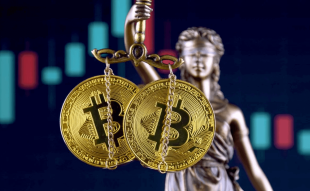The clash between Kalshi and Nevada regulators isn’t just a legal skirmish—it’s a high-stakes battle over the future of financial innovation. As the New York-based exchange fights to protect its CFTC-authorized platform, the outcome could determine whether prediction markets evolve into mainstream financial tools or remain constrained by outdated gambling laws. Let’s unpack this drama and explore why it matters for traders, regulators, and anyone interested in the future of finance.
The Heart of the Conflict: Federal vs. State Authority
At the core of this legal battle lies a fundamental question: Who gets to regulate cutting-edge financial instruments? Kalshi, operating as a CFTC-designated contract market since 2020, argues its event contracts fall squarely under federal oversight. Nevada gaming officials counter that products tied to sports outcomes and election results resemble traditional sports betting—a domain they’ve controlled for decades.
A temporary restraining order and preliminary injunction are warranted—and desperately needed now
The tension reached boiling point when Nevada Gaming Control Board Chairman Kirk Hendrick threatened imminent enforcement action, prompting Kalshi to seek emergency federal intervention. Court filings reveal the exchange’s urgent plea: “A temporary restraining order and preliminary injunction are warranted—and desperately needed now”. This language underscores the existential threat Kalshi perceives from state-level challenges to its federally approved business model.
How Prediction Markets Actually Work
Unlike traditional sportsbooks, Kalshi’s platform functions more like a hybrid between a financial exchange and a polling aggregator. Users trade binary contracts (Yes/No positions) on events ranging from “Will inflation exceed 3% this quarter?” to “Will Team X win the championship?” Prices fluctuate based on market sentiment, creating real-time probability estimates that often outperform expert predictions.
The platform’s 2020 CFTC approval marked a regulatory milestone, with CEO Tarek Mansour hailing it as “a paradigm shift for financial markets.” Unlike unregulated prediction markets, Kalshi’s contracts settle based on verifiable outcomes (election results, economic data releases, etc.), creating what supporters call “a wisdom-of-crowds risk management tool”.
Nevada’s Gambling vs. Kalshi’s Trading: Key Differences
-
Regulatory Oversight
-
Traditional Sports Betting: State-licensed operators, strict age restrictions, limited markets
-
Kalshi’s Model: CFTC-regulated exchange, available to retail investors 18+, diverse event types
-
-
Market Structure
-
Sportsbooks: Fixed odds set by bookmakers
-
Prediction Markets: Dynamic pricing driven by participant trading
-
-
Economic Purpose
-
Gambling: Pure risk-taking for entertainment
-
Event Contracts: Hedge against real-world risks (e.g., businesses insuring against regulatory changes)
-
This distinction matters because the CFTC explicitly approved Kalshi’s political and sports contracts earlier this year, creating a regulatory green light that Nevada now challenges.
The Preemption Playbook: Kalshi’s Legal Strategy
Kalshi’s lawsuit leans heavily on the concept of federal preemption—the idea that Congress’s creation of CFTC oversight nullifies conflicting state regulations. Their filings cite a recent D.C. Circuit Court decision affirming that “event contracts never violate state law when traded on federally regulated exchanges”.
The exchange warns of regulatory chaos if states can override CFTC approvals: “A patchwork of state-by-state regulation would strangle innovation in financial markets”. This argument resonates with fintech advocates who’ve seen similar clashes in cryptocurrency regulation.
What’s at Stake for Traders and Investors?
-
Market Access
Nevada’s crackdown could inspire copycat actions in other states, potentially locking 40 million Americans out of prediction markets if similar restrictions spread. -
New Hedging Tools
Event contracts let businesses mitigate risks unrelated to traditional markets. A restaurant chain could hedge against minimum wage hike proposals, or a tech firm might offset regulatory change risks. -
Data Utility
The collective $47 million traded on Kalshi’s 2024 election contracts provided real-time sentiment data that often correlated with polling shifts. Losing this information stream could impoverish market analysis.
This conflict mirrors larger tensions between financial innovators and legacy regulators:
-
Cryptocurrency Exchanges: Fought similar state/federal jurisdiction battles
-
AI Trading Tools: Face scrutiny over “gambling-like” rapid trading features
-
Retail Investing Apps: Grapple with gamification concerns
Kalshi’s multi-state legal strategy (including parallel actions in New Jersey) reflects the complex reality of operating nationwide platforms in the U.S.’s fragmented regulatory environment.
Why Timing Matters: The April 2 Deadline
Nevada regulators set an April 2, 2025 deadline for enforcement action, creating urgent stakes for Kalshi’s temporary restraining order request. If granted, the 14-day injunction would freeze Nevada’s efforts while courts weigh constitutional questions about regulatory overlap.
Legal observers note the case could accelerate reform of the 2006 Unlawful Internet Gambling Enforcement Act, which currently exempts CFTC-regulated markets. A favorable ruling might spur Congress to clarify prediction markets’ legal status nationwide.
When Futures Markets Fought States
The current clash echoes 19th-century battles over commodity futures. Chicago’s grain traders once faced state bans on “speculative” contracts before federal oversight standardized markets. Kalshi positions itself as the natural evolution of this process—a argument strengthened by its CFTC designation.
In terms of what happens next, there are three possible outcomes:
-
Federal Win
Courts uphold preemption, freeing CFTC-regulated exchanges from state gambling laws. This could trigger a prediction market boom. -
State Victory
Nevada prevails, emboldening other states to restrict event contracts. Platform operators might retreat to friendlier jurisdictions. -
Hybrid Solution
A congressional carve-out specifying which event types fall under CFTC vs. state oversight. Sports contracts could face stricter rules than economic/political ones.
Why This Matters Beyond Finance
Prediction markets aren’t just trading venues—they’re social weather vanes. During COVID-19, similar platforms accurately tracked PPE shortages before government reports. By combining financial incentives with collective intelligence, they offer unique insights that traditional markets can’t match.
As Kalshi’s lawyers noted: “The Board’s actions threaten irreparable harm to the development of markets that Congress expressly authorized.”
Whether that warning sways judges may determine if event trading remains niche or becomes the next evolution of financial markets.


